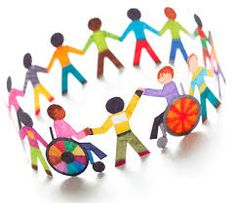Many of our programs support students with significant academic, behavioral, communication, social, and emotional needs in the general education setting with highly coordinated services. Our partner schools are all at different stages of implementation of successful inclusion programs and our staff all play key roles in the development and delivery of these programs.
Inclusion is a mindset. Successful inclusion programs require more than a belief in the principle of education all students together. It requires training for staff and students, highly individualized student services, and additional research on the long-term outcomes.
This article explores the history of inclusion in education and what current research says about the outcomes of inclusion programs. It discusses some of the considerations required to build and maintain effective inclusion program and discusses some of the positive outcomes both for students with disabilities and students without disabilities.


 RSS Feed
RSS Feed